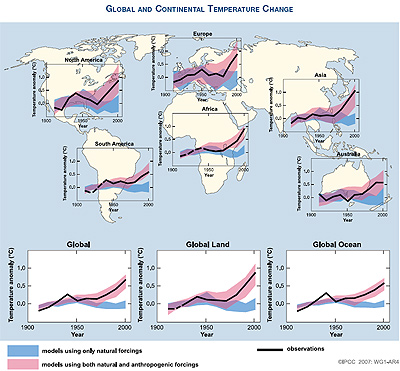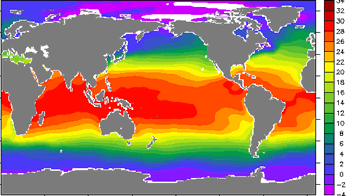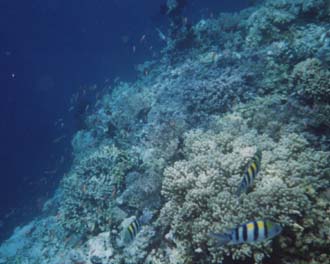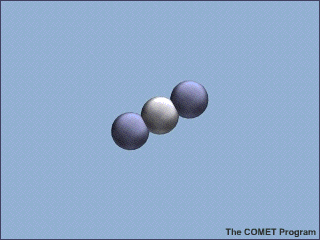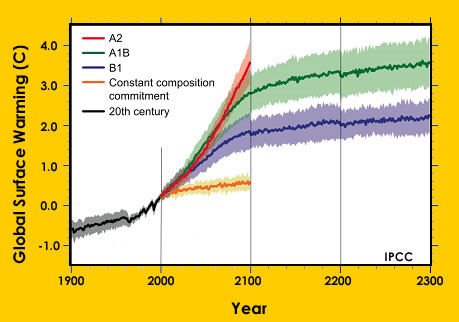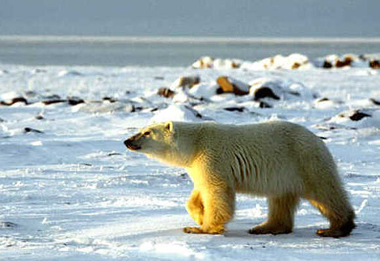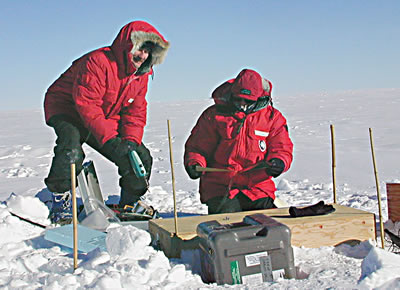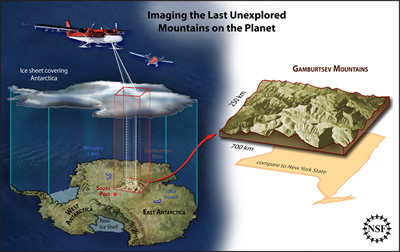Click on image for full size
IPCC 2007: Working Group 1 - AR4
The Intergovernmental Panel on Climate Change
Imagine doing a book report for a school assignment. You read a book and then write a summary describing what it is about. Simple, right?
Now imagine that you are doing that book report as a group project – not with a small group of students, but instead with a group of several hundred climate experts from around the world. And instead of one book, your group is responsible for writing a report about all of the books and articles that describe what we know about Earth’s climate.
That’s the job of the Intergovernmental Panel on Climate Change – the IPCC.
The IPCC is a group of hundreds of experts from more than 100 countries. They work at universities, research centers, businesses, and environmental organizations. Together, to build the IPCC reports, they study our current understanding of human-induced climate change – its risks, possible impacts, and options for how to adapt.
The IPCC does not do research about climate change. Instead, the Panel produces reports that explain what we as a global community know about climate change. These reports are based on all the available scientific literature and as such they are like the world’s most extensive book reports.
The reports of the IPCC are used by government officials in countries around the world as they make policies about how their countries will tackle problems like greenhouse gas emissions, climate change, and other global changes. The reports are also read by scientists, other experts, students, and anyone else who wants to better understand what we know about Earth’s climate system.
In 1988, as it started to become clear that human activities could have a worldwide and lasting impact on our planet, the IPCC was formed by the World Meteorological Organization (WMO) and the United Nations Environment Programme (UNEP). The WMO and UNEP recognized that there was a need to help people understand how the Earth’s climate system works so that people could make informed decisions about how they would live on the planet. Since our understanding of the Earth’s climate is growing broader each year, there is an ongoing need to keep people informed about the current state of knowledge about Earth’s climate.
The First Assessment Report, released in 1990, confirmed the scientific basis for concern about climate change. The Second Assessment Report provided scientific input to the Kyoto Protocol negotiations in 1995. The Third Assessment Report (2001) and the Forth Assessment Report (2007) both had sections to address “The Scientific Basis”, “Impacts, Adaptation and Vulnerability” and “Mitigation”.
In October 2007 the IPCC was awarded the Nobel Peace Prize jointly with Former US Vice President Al Gore “for their efforts to build up and disseminate greater knowledge about man-made climate change, and to lay the foundations for the measures that are needed to counteract such change,” announced Professor Ole Danbolt Mjøs, Chairman of the Norwegian Nobel Committee on October 12, 2007.
The most recent reports are available online at the IPCC website.


